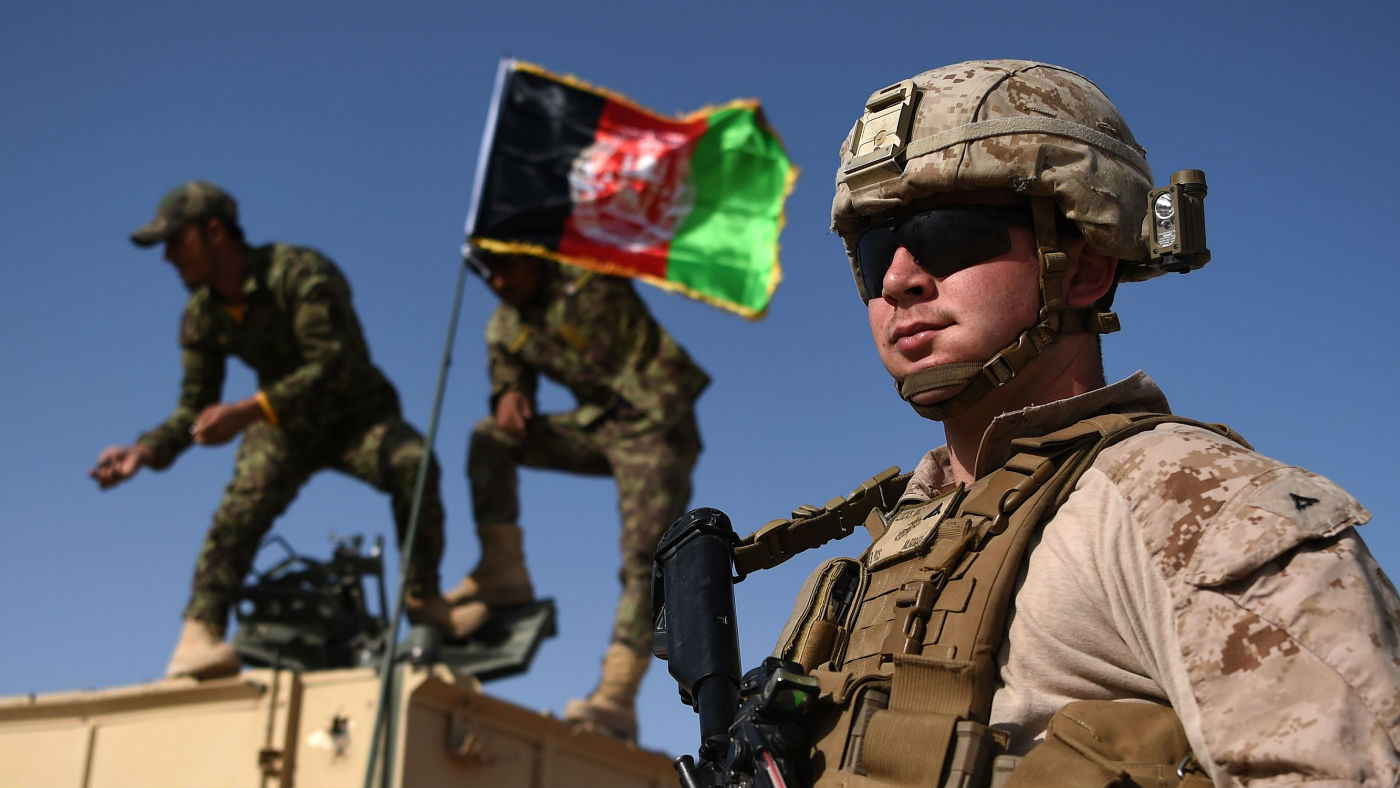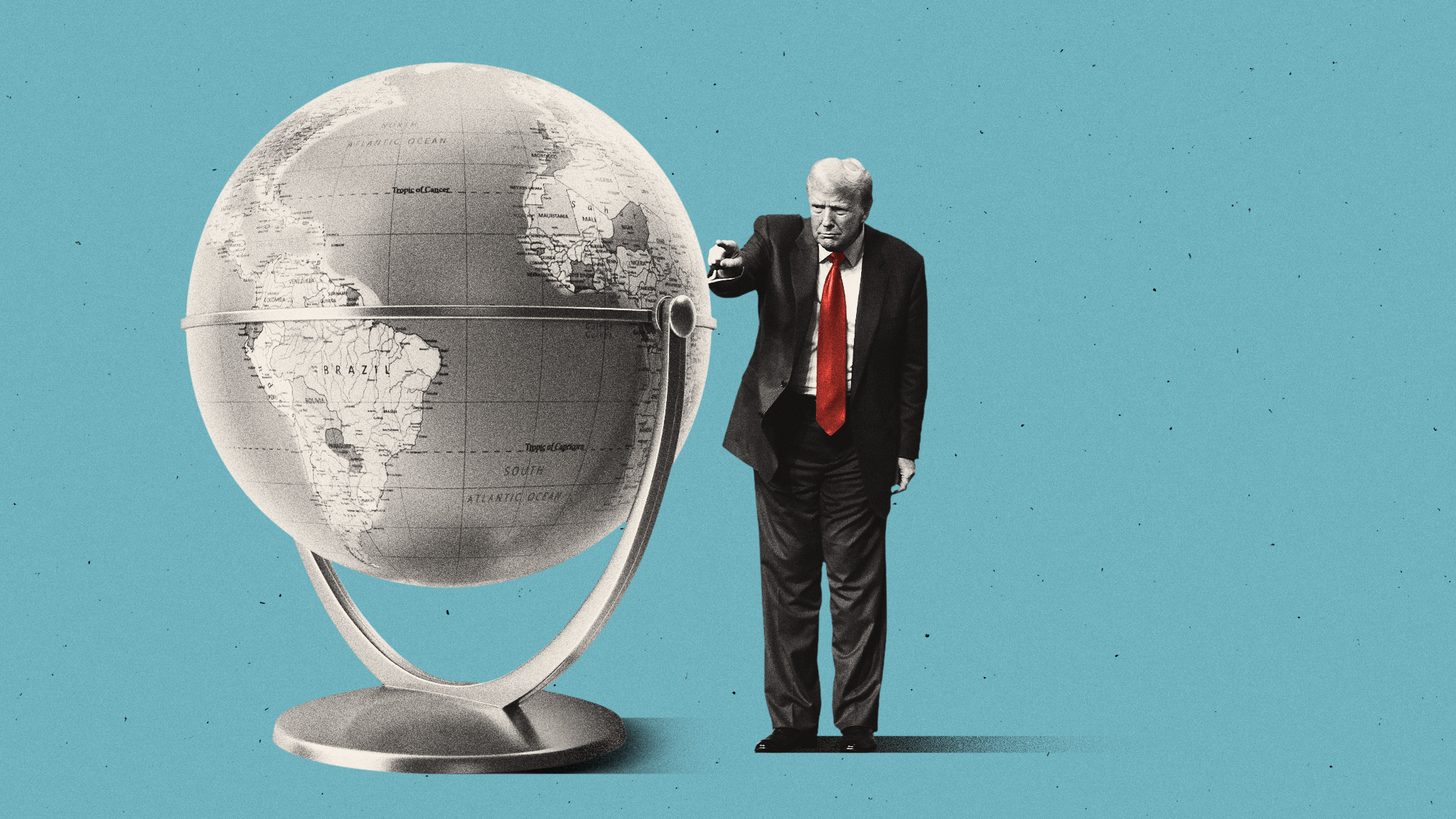What does ‘winning’ in Afghanistan look like?
How US strategy has slowly shifted in face of growing Taliban confidence

A free daily email with the biggest news stories of the day – and the best features from TheWeek.com
You are now subscribed
Your newsletter sign-up was successful
With US attention fixed firmly on domestic issues, on the other side of the world, the country’s longest running war has seen one of its most deadly weeks in years.
Over the past ten days, hundreds of people have been killed in a series of attacks by Taliban fighters on government forces in Afghanistan.
“Taken individually, each development is an embarrassing defeat for the Afghan government and its Western supporters” says Krishnadev Calamur in The Atlantic; “taken together, the setbacks, especially the events in Ghazni, challenge the US and Afghan government’s narrative of progress in the conflict”.
The Week
Escape your echo chamber. Get the facts behind the news, plus analysis from multiple perspectives.

Sign up for The Week's Free Newsletters
From our morning news briefing to a weekly Good News Newsletter, get the best of The Week delivered directly to your inbox.
From our morning news briefing to a weekly Good News Newsletter, get the best of The Week delivered directly to your inbox.
Reports vary as to how much of Afghanistan is now occupied by the Taliban, but according to a BBC study published earlier this year, insurgents remain active in roughly 70% of the country even after 17 years of conflict.
Former Pentagon analyst Michael Maloof on RT quotes one intelligence officer as saying that if the US were to pull its remaining troops, believed to number around 14,000, out of the country, the US-installed government would not last beyond a week.
For its part, the White House remains committed to the strategy set out by Donald Trump last year, when he said “winning” is still the goal.
But underneath the rhetoric a subtle shift is emerging.
A free daily email with the biggest news stories of the day – and the best features from TheWeek.com
“Afghanistan has gone from being a Forgotten war, to the Ignorable one” says CNN’s Nick Paton Walsh. Rather than outright military victory, “instead the onus appears to be on the West engineering a justifiable exit, or a discreet winding-down of the war”.
This has led to what Paton Walsh calls an “absolutely seminal, but almost unpublicised change” that has happened in US policy over the past months: a decision that it is OK to talk directly to the Taliban.
Seventeen years after the 9/11 and the subsequent invasion, and four years after the majority of western-backed troops left the country, it appears the US is finally willing to engage in direct talks with the militant group.
“Now more than ever, for the Taliban action on the battlefield is aimed at political effects as much as military”, says Peter Apps for Reuters.
“This week's assault looks less like an attempt to capture ground and more a deliberate demonstration of the group’s reach and capability, essentially setting the groundwork for negotiations already quietly underway.”
With no obvious military victory in sign and an insurgency growing in confidence, “the White House is correct to focus on a negotiated settlement,” says CNN. “But times have changed. The US and its allies have to be candid that this will not be the “win” on its terms that it hoped for”.
-
 What to know before filing your own taxes for the first time
What to know before filing your own taxes for the first timethe explainer Tackle this financial milestone with confidence
-
 The biggest box office flops of the 21st century
The biggest box office flops of the 21st centuryin depth Unnecessary remakes and turgid, expensive CGI-fests highlight this list of these most notorious box-office losers
-
 The 10 most infamous abductions in modern history
The 10 most infamous abductions in modern historyin depth The taking of Savannah Guthrie’s mother, Nancy, is the latest in a long string of high-profile kidnappings
-
 Munich Security Conference: a showdown between Europe and Trump?
Munich Security Conference: a showdown between Europe and Trump?Today’s Big Question Report suggests European leaders believe they can no longer rely on the US for military support – but decoupling is easier said than done
-
 New START: the final US-Russia nuclear treaty about to expire
New START: the final US-Russia nuclear treaty about to expireThe Explainer The last agreement between Washington and Moscow expires within weeks
-
 Would Europe defend Greenland from US aggression?
Would Europe defend Greenland from US aggression?Today’s Big Question ‘Mildness’ of EU pushback against Trump provocation ‘illustrates the bind Europe finds itself in’
-
 Greenland, Colombia, Cuba: where is Donald Trump eyeing up next?
Greenland, Colombia, Cuba: where is Donald Trump eyeing up next?Today's Big Question Ousting Venezuela’s leader could embolden the US administration to exert its dominance elsewhere
-
 Did Trump just end the US-Europe alliance?
Did Trump just end the US-Europe alliance?Today's Big Question New US national security policy drops ‘grenade’ on Europe and should serve as ‘the mother of all wake-up calls’
-
 Trump peace deal: an offer Zelenskyy can’t refuse?
Trump peace deal: an offer Zelenskyy can’t refuse?Today’s Big Question ‘Unpalatable’ US plan may strengthen embattled Ukrainian president at home
-
 Vladimir Putin’s ‘nuclear tsunami’ missile
Vladimir Putin’s ‘nuclear tsunami’ missileThe Explainer Russian president has boasted that there is no way to intercept the new weapon
-
 Russia’s war games and the threat to Nato
Russia’s war games and the threat to NatoIn depth Incursion into Poland and Zapad 2025 exercises seen as a test for Europe